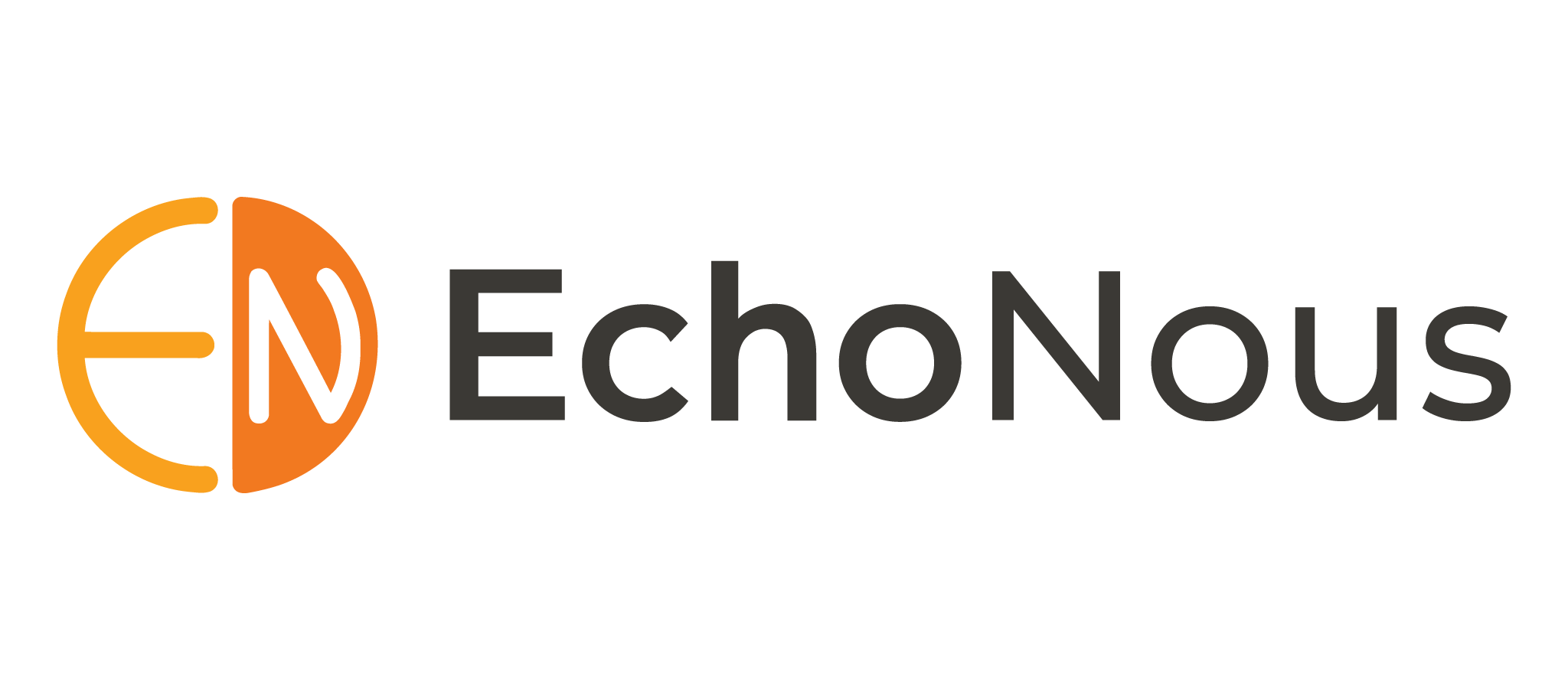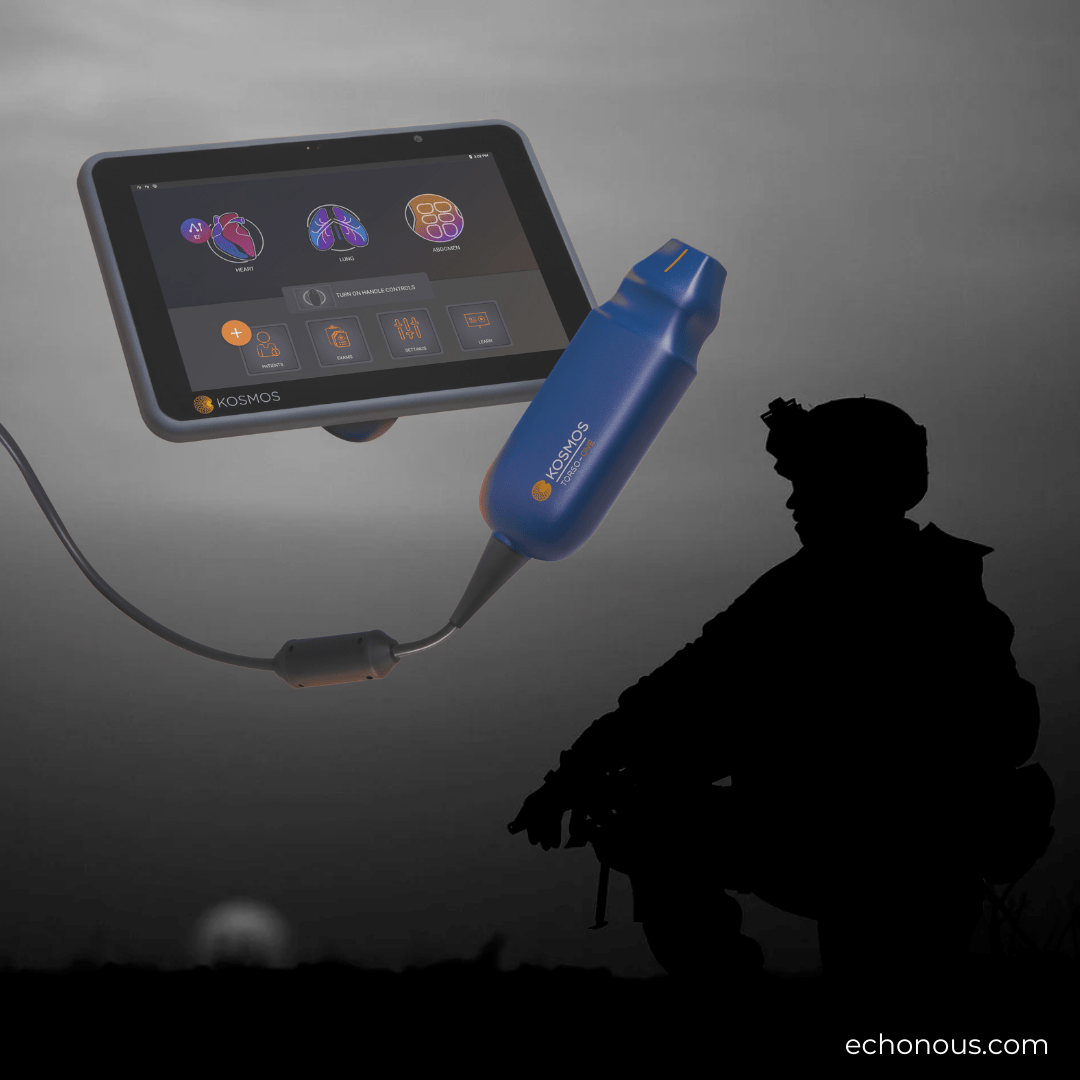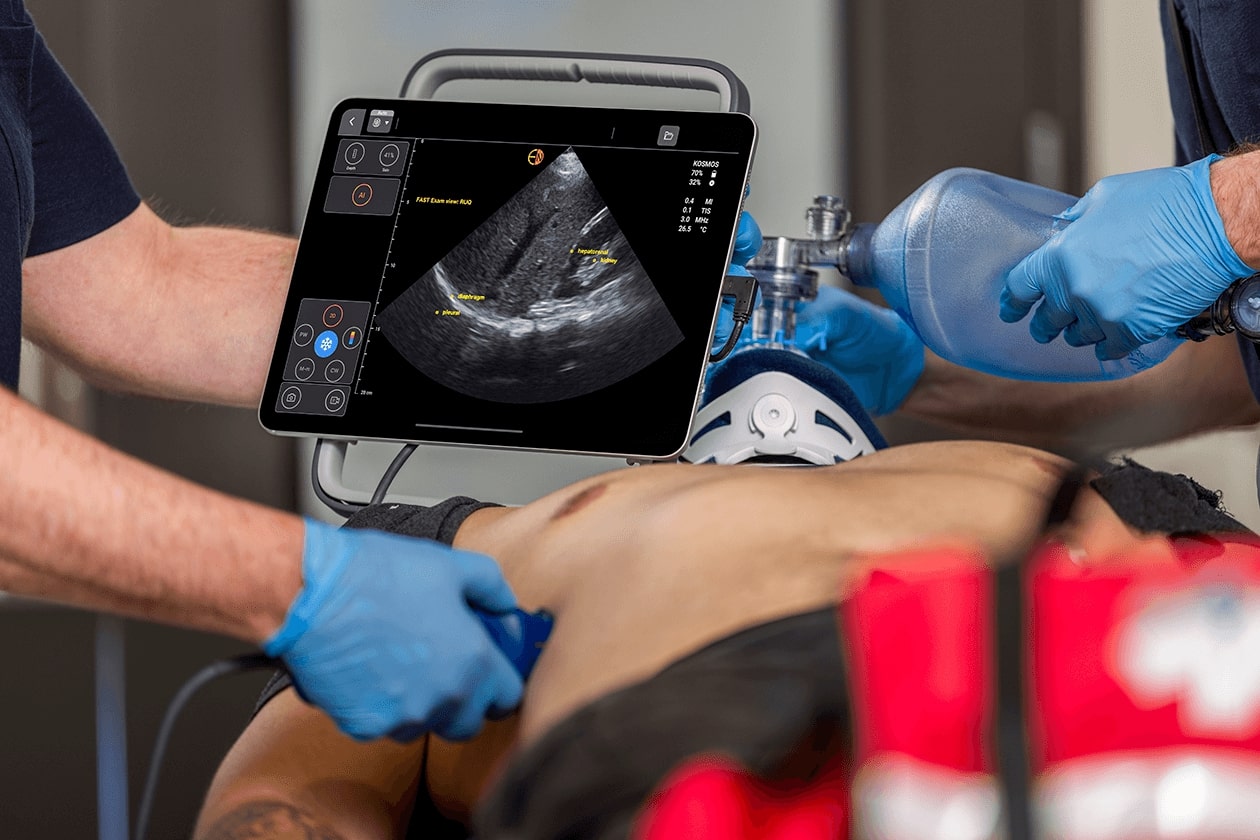
Dr. Hatem Soliman-Aboumarie
Consultant in Cardiac Intensive Care
From Basics to Breakthroughs:
POCUS and the Shifting Paradigm in Acute Care Medicine
The EchoNous team recently spoke with Dr. Hatem Soliman-Aboumarie, a distinguished figure in Point-of-Care Ultrasound (POCUS) and Cardiac Critical Care Medicine. As a cardiac intensivist with extensive experience in echocardiography, Dr. Soliman believes that POCUS is transforming the landscape of acute care by enhancing the physical examination through imaging.
Meet Dr. Hatem Soliman-Aboumarie
Dr. Hatem Soliman-Aboumarie, a consultant in cardiac intensive care who works for Harefield Hospital in London, is globally recognized for his expertise in POCUS. He is trained in cardiothoracic critical care medicine and mechanical circulatory support (ECMO) and advanced training in echocardiography.
Over the last few years, he has played a pivotal role in advancing echocardiography medical education and point-of-care ultrasound in the UK and globally, serving as invited faculty at international congresses. Additionally, Dr. Soliman holds an Honorary Senior Lecturer position at the School of Cardiovascular Sciences and Medicine at King’s College London.
His affiliations include being an elected board member and councilor for echocardiography at the European Association of Cardiovascular Imaging of the European Society of Cardiology, an elected Fellow of the Royal College of Physicians of the UK, a Fellow of the American Society of Echocardiography, EACVI and a Fellow of the Higher Education Academy of the UK.
Dr. Soliman is a member of the editorial board of The Ultrasound Journal (Springer), Frontiers in Cardiovascular Imaging, Frontiers in Heart and Lung Transplantation and the Journal of the American College of Cardiology Cardiovascular Imaging. Notably, his recently published book, “Cardiopulmonary Point of Care Ultrasound,” provides a comprehensive resource for those seeking insights into the techniques in cardiology, respiratory medicine, and critical care and acute care specialties. The book, accompanied by a rich multimedia library, is co-edited with leading experts and authored by 67 authors among the top worldwide experts in the field of echocardiography and point-of-care ultrasound.
POCUS in Acute Care: The Changing Nature of Acute Care Medicine
In the landscape of acute and critical care medicine, Dr. Soliman has witnessed a shift in the demand for more comprehensive and immediate diagnostics at the bedside.
“When I started my training in critical care in 2005, echocardiography wasn’t an integral part of the toolkit.” This scarcity of diagnostic resources and expert mentors within the critical care environment led him to explore alternative routes to pursue his passion.
As a result, Dr. Soliman embarked on a distinctive path with his decision to pursue a master’s degree in critical care echocardiography, which was, despite initial skepticism from some senior peers, a pivotal moment in his career.
Dr. Soliman began his graduate studies in echocardiography under mentorship from leading cardiologists in Egypt. However, there were other challenges.
“Back then, echocardiography was solely done by cardiologists who didn’t have adequate training in critical care medicine, therefore there was a clear gap between echocardiography and critical care medicine. The culture didn’t readily embrace intensivists learning echocardiography.”
On arriving in London, Dr Soliman started his subspecialist training in cardiothoracic intensive care, mechanical circulatory support, and critical care echocardiography at the Royal Brompton Hospital in London. There, he was trained under world-leading experts in the field and his passion was fulfilled by learning and seeing the true integration of bedside ultrasound in complex cardiac critical care, as well as mechanical circulatory support.
Since that time, Soliman has been advocating nationally and internationally for the integration of POCUS in acute cardiac care.
“Over the last decade, I’ve delivered lectures in more than 60 countries.” Reflecting on the transformative opportunity to continually learn with every lecture he prepares, every workshop he delivers, it is a never ending journey of learning and scientific exploration.
“My initial foray into using echocardiography in intensive care was pivotal in my career as an intensivist. Back then, I had no idea where this might take me, and I feel so much privileged to have been given the opportunity to contribute globally to the ongoing revolution in point-of-care ultrasound within acute care, emergency, and critical care practices.”
The Growing Adoption of Point-of-Care Ultrasound
Today, POCUS is changing acute care by enhancing the physical examination through imaging, Dr. Soliman notes.
“Ultrasound is the true stethoscope. Point-of-care ultrasound enhances the pillars of the bedside physical examination and guides clinical decision-making. Critical Care has shifted from the protocolised approach to modern approaches which focuses on personalizing care and POCUS can help in delivering this personalized care”. By using POCUS in this manner, providers can engage in quick assessments that facilitate treatment decisions and improve the quality of care delivered as well as individualizing care.
Innovation in Point-of-Care Ultrasound for Acute Care: Technological Innovations Enabling New Applications
Dr. Soliman sheds light on the technological innovations revolutionizing the use of POCUS in acute care, particularly focusing on handheld devices and advanced capabilities.
Discussing the evolution of POCUS, Dr. Soliman emphasizes the significance of ultraportable devices like Kosmos with advanced Doppler capabilities. Continuous Wave Doppler and Tissue Doppler Imaging represent key components of these advancements. Integrating these technologies into portable solutions enhances the diagnostic capabilities of clinicians at the bedside.
Furthermore, Dr. Soliman acknowledges the role of AI-assisted workflow and interpretation in shaping the future of POCUS.
“Embracing [AI] is crucial for improving the learning process, making it quicker. Quicker assessment leads to quicker decision-making, resulting in better patient care.”
Upskilling Teams Beyond Physicians
Dr. Soliman’s commitment to expanding POCUS beyond traditional physician roles is evident in his efforts to train nurses and physiotherapists on the technology. “My dream is that most of the team will be trained in point-of-care ultrasound,” he said.
In the context of building competency across multidisciplinary teams, Dr. Soliman emphasizes the importance of knowledge transfer. “My aim is to train the trainers, creating a faculty within the team. I want my patients to get the best quality of care, and I want my staff to be inspired and upskilled,” he said. This approach aligns with the broader goal of ensuring that POCUS becomes integral to patient care across various healthcare disciplines.
Improved Efficiency and Cost Savings
Dr. Soliman believes the implementation of POCUS goes beyond its clinical applications to also impact economics. “Efficiency means better care, shorter patient stay in hospital and eventually cost reduction,” he noted, underscoring the broader impact of POCUS in optimizing healthcare resource utilization.
As an educator, Dr. Soliman emphasizes the role of AI in enhancing education. “We started undergraduate teaching for medical students using AI capabilities. We trained over 100 medical students using Kosmos AI, and the results were impressive!”
The Future: Integrated Point-of-Care Ultrasound
In envisioning the future of POCUS, Dr. Soliman advocates for an integrated approach that seamlessly combines cardiac, lung, and venous system exams. His insights reflect a nuanced understanding of the evolving landscape of POCUS, where adaptability to the clinical context and specific questions takes center stage.
“Patients are becoming sicker, so we are dealing with much more complex cases. In cardiothoracic intensive care, it’s often not enough to have the binary classic POCUS ‘yes or no.’ You need calculations and measurements,” Dr. Soliman said, emphasizing the shift from traditional approaches to a more nuanced spectrum of ultrasound examinations and building ultrasound care around a patient-centered approach.
Dr. Soliman underscores the crucial role of POCUS in assessing hemodynamics and fluid status at the bedside. “In my patients, I usually aim to assess perfusion, cardiac output, and pulmonary vascular resistance, which is certainly not a basic ultrasound; it is quite complex,” noting the need for more sophisticated ultrasound techniques in addressing the challenges presented by patients in quaternary referral centers.
While acknowledging the utility of basic POCUS in emergency situations with straightforward cases, Dr. Soliman makes a clear distinction between diagnostic echocardiograms and point-of-care assessments. “POCUS is not a replacement for comprehensive diagnostic echocardiograms; this is a point-of-care assessment,” he said, emphasizing that the goal is not to replace traditional diagnostic ultrasounds but to enhance bedside evaluations and answer specific clinical questions in a targeted approach.
Despite potential challenges in introducing ultrasound training to various healthcare roles, Dr. Soliman remains optimistic. “There’s nothing completely smooth,” he acknowledges, noting that the belief in the importance of POCUS tends to overcome the barriers. His pragmatic approach underscores a commitment to advancing healthcare, where integrated point-of-care ultrasound emerges as a pivotal tool, providing accurate, targeted assessments at the bedside by the wider members of the team and this culture change certainly takes time. He feels that it is a huge privilege to be able to contribute to better and safer care for cardiac and critically ill patients and to be part of the ongoing development of bedside modern medicine.
References
1. Soliman-Aboumarie, H., Haertel Miglioranza, M., Gargani, L., & Volpicelli, G. (Eds.). (2023). Cardiopulmonary Point of Care Ultrasound (1st ed.). Springer Cham. https://doi.org/10.1007/978-3-031-29472-3
Stay tuned for our in-depth Q&A article, where Dr. Hatem Soliman-Aboumarie shares his journey, the spark that ignited his interest in ultrasound, and the potential of POCUS in improving the quality of care delivered to patients across the healthcare industry.
To Learn more about Kosmos, contact us today!




